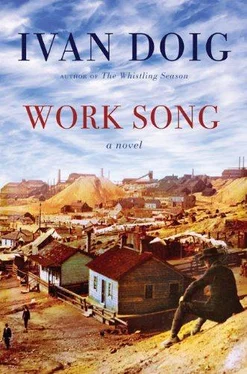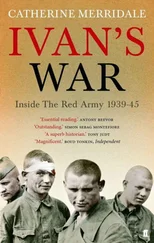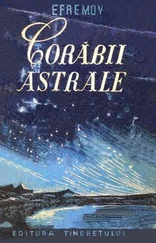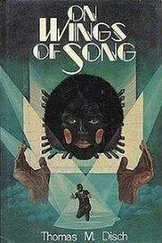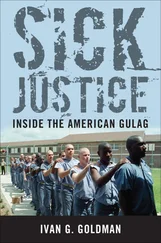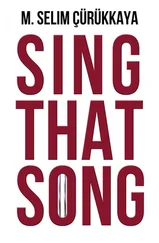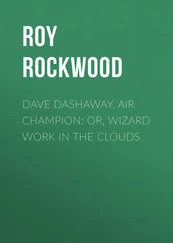Then, though, came a chorus I could have done without.
Were I to cherish earthly riches,
They are swift and fleet of wing;
A heart pure and virtuous,
Riches and eternal gain will bring.
There is that about the Welsh: they can sing their way under your skin, to the bones of your being. I needed no reminding that riches, in what pursuit I had given them, had proved to be elusively swift and winged. Yet why did a Richest Hill on Earth and its supposed opportunities exist, if not to be tapped? Was I really supposed to count my gains in life only afterward, in the time of tragwyddoldeb? Eternity did not seem much of a payoff if you had to scrimp to get there.
My spell of brooding broke off when the old minister, frail as a leaf after the gusts of the choir, ascended to the pulpit once more.
“ ’Tis no sense to maunder about, when but one thing is on every mind.” He gazed severely over the settled moons of his glasses. “There is talk of a strike in the mines, is there not?” The rustle of the congregation answered that.
“I have had my say any number of times before,” the ministerial voice sounded weary, “on the stopping of work and the negotiating of wages. The two seem as bound together in this town as the two sides of a coin.” Aha! Not even the man of the cloth could set aside the propensity for earthly gain. Perhaps I was imagining, but his own choir seemed to be looking at him as though he had just caught up with a main fact of life. “The shepherd does not leave his flock, even when it may have wool over its eyes,” he went on drily. “If the mines do shut down, the church shall again have a strike committee. We’ll again gather food and clothing for the families left bereft. Depend on that.” He paused, drawing on the silence. “A word of caution, however. If you men do go out”-he looked out over the stooped miners’ shoulders that filled half the church-“or you women march in their support”-a similar gaze to the upturned faces of the wives-“as you have been known to do, walk the line of the law very carefully. The times are not good. The sedition laws that came with the war are not fine-grained as to whether a person is the Kaiser in disguise or a Bolshevik with a bomb under his coattails or an honest miner seeking honest pay. Some of you had a taste of that last time, when I had to go down to the jail and bail you out for the hitherto unknown crime of ‘unlawful assembly.’ ” Reaching in over his glasses, he pinched the bridge of his nose as if to shut off that memory. “The church coffer is no longer sufficient for bail,” the words came slowly now, “nor can we keep contributing to legal defense funds. This time around, it will all be up to your union. You can help its cause and your own by being mindful of that pernicious statute until wiser heads can change it. Otherwise, Butte’s finest, to call them that”-it was well known that Butte policemen were Irish, and not the Dublin Gulch ore-shoveling type-“will pick you off like ripe apples. For now,” his voice rose, “render therefore unto Caesar the things which are Caesar’s.”
I squirmed at that. I perfectly well knew it to be a biblical parable, but it was not Caesar up there in the Hennessy Building, pulling strings attached to the police department.
The minister took off his spectacles, folded them, and seemed to shake his head at himself. “Let us return to the singing.”
As we walked out after the service, Grace pursed a look at me as if to see what I thought. “My Arthur used to say there are those who make a scarecrow of the law.” I thought it best not to say Arthur had read some Shakespeare along the way. Directly ahead of us, Hoop and Griff were stumping along, sleeve cuffs flying as they dissected the sermon. Watching them, Grace said soberly: “The union is going to have its hands full, isn’t it.”
THERE WAS NO KNOWING how these things come about, but somehow that Sunday spate of Welsh sermonizing and song rinsed away the window men. The way was clear, to and from the library, the next day and the next and those after that, and while I habitually peeked over my shoulder for figures lurking half a block behind, they were notable only for their absence. It was as I indeed hoped, I could tell myself: the goons or their bosses saw me for what I was, a glorified library clerk sauntering meek and mild to church, and were wasting no further time on me.
Which was a lucky thing, because I was falling in love with the Butte Public Library. Walking up to it each fresh morning, its Gothic turret like the drawbridge tower into the castle, I warmed to the treasures within those softly gray granite walls. Sandison standing there at the top of the steps counting us off as if checking his herd came to seem patriarchal rather than high-handed. The staff softened toward me-with the exception of Miss Runyon-as I picked up stray tasks that they wanted to dodge. The nooks and crannies and grandiosities of the old building intrigued me, like an ancient mansion labyrinth leading back to Gutenberg’s printing press and the start of everything, and always, always, there were the lovely classic books tucked away here and there for stolen snatches of reading. Down any aisle, Stendhal or Blake or Wharton or Cather or Shakespeare or Homer or any of the Russians waited to share words with me, their classic sentences in richly inked typefaces as if rising from the paper. I suppose the best way to say it is that the library’s book collection, courtesy of that snowtopped figure with the Triple S initials, was the kind I would have had myself if I were rich.
In short, work of this sort fit me from head to toe. I could even put up with sharing office space with Sandison, as his chain-lightning moods kept a person alert. The old saying had his name on it: he may have been hard to get along with, but harder to get along without.
The library ran on one principle: Samuel S. Sandison was next to God. Whether above or below, opinions varied. His style of administration was as effective as it was unpredictable. For hours on end he would stay holed up in the office, apparently oblivious to anything happening elsewhere in the building. Then without warning he would barge out of his lair and prowl from floor to floor, wearing the expression of a man who took pleasure in kicking puppies. The result was an amazing library: the staff was on its toes every second, and its offerings were, of course, first-rate. I have to say, the man responsible for all this was not exactly an officemate easy on the nerves. The only mirth Sandison showed was when he spotted a bargain book in some catalogue of rarities and he would let out a “Heh!” and smile beneath his wreath of beard. Mostly, being around him was like having the Grand Inquisitor grading one’s homework.
“Goldsmith,” he characteristically would snap over his shoulder from where he was enthroned in his desk chair, and I had mere seconds to figure out whether he meant for me to trot across town to the dealer in fine metals or commence a conversation about the poet of England’s peasantry.
Guessing, I recited: “ ‘Ill fares the land, to hastening ills a prey / Where wealth accumulates, and men decay.’ Rather daring for his day, wouldn’t you say, Sandy?”
“Romantic twaddle about how nice it was to live in huts, I’d call those elegies of his.”
“That’s too dry a reading of him,” I protested. “He had a wicked wit. Who else would have said of Garrick that onstage he was wonderfully simple and natural, it was only when he was off that he was acting?”
That brought a snort. “Doesn’t mean old Goldilocks could tell a hoe from a hole in the ground. Robert Louis Stevenson, now, he knew his stuff about how life really is.” And with that, Oliver Goldsmith, or whomever, would be consigned to the vast second rank and remain unbought.
Читать дальше
